Fame (1980)
“A real artist must never be afraid of what other people will say about him.”
|
Synopsis: |
|
Genres, Themes, Actors, and Directors:
Response to Peary’s Review: What stands out most vividly about the movie are the “imaginatively staged, free-for-all musical production numbers”, during which “everyone in the school jumps in spontaneously”, with “blacks, whites, and hispanics dancing together, ballet dancers rocking with students in wild street clothes, cellists jamming with drummers”; we truly “see spirited democracy at work, and no one worries about making fools of themselves”. While these numbers are far from realistic (who cares?), they nonetheless perfectly capture the vibrancy, enthusiasm, diligence, and creativity of this immensely talented group of teens — which makes it especially depressing to see how much they inevitably struggle to “make it” as artists in the “real world” (though Parker should be commended for authentically representing this aspect of their young existence, too). As Peary writes, the “entire film, not just the music, has rhythm”, which is “most evident in the dialogue [Christopher Gore wrote the screenplay] and the editing” (by Gerry Hambling). Indeed, other than its catchy score (by Michael Gore), the film’s fast-paced, finely calibrated editing is one of its most distinctive features — particularly during the first section (entitled “Auditions”; the remaining sections are divided into the four high school years). I also love how Parker manages to capture not only the immense ethnic and social diversity of these New York youths, but how multi-talented they must become to have a fighting chance of success as working artists. They must also prove themselves academically, at least in order to graduate — and it’s on this latter topic that the film ultimately flails a bit, as demonstrated in the interactions between Ray and his English teacher (Anne Meara), who doesn’t seem to have a clue that her defiant student may be struggling with issues far more complicated than mere motivation. I wish the screenplay spent more time on Ray (whose complex character is the most interesting by far) and less on the friendship/love “triangle” between Teefy, Miller and McCrane — though their outing to see a midnight screening of The Rocky Horror Picture Show remains a fun cultural artifact. While Fame may ultimately try to cover a bit too much territory in one feature-length film (the 1982-1987 T.V. show spin-off made complete sense!), it’s easy enough to focus on the parts that work exceptionally well — and, thankfully, many do. Note: Sadly, Ray (who played Leroy in both the film and T.V. series) apparently struggled enormously in his personal life, becoming HIV-positive and dying far too young (of a stroke) at 41. Redeeming Qualities and Moments:
Must See? Categories
Links: |
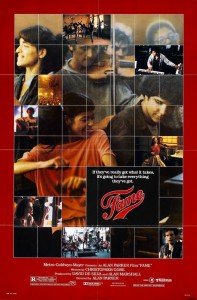
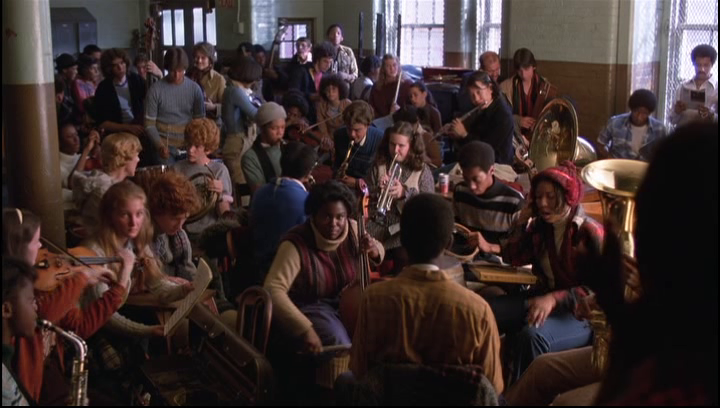
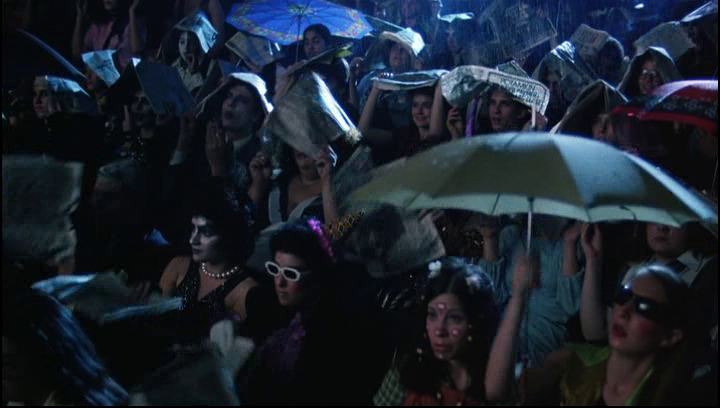
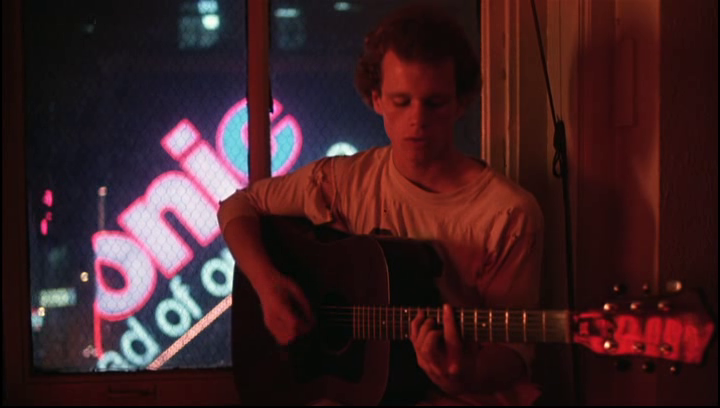
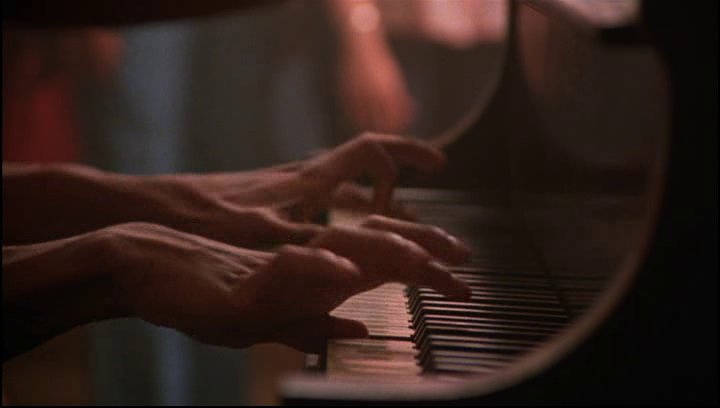
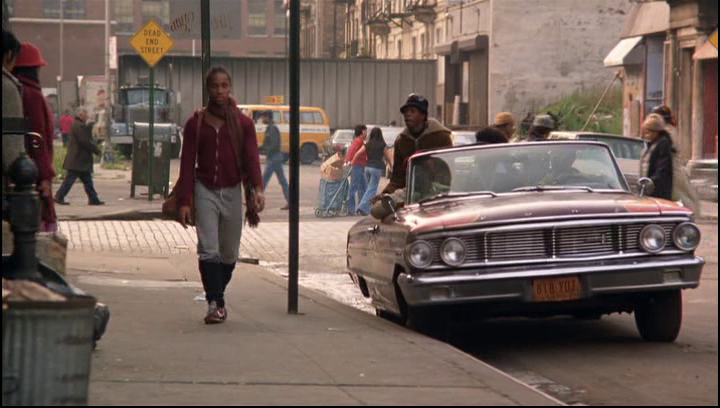
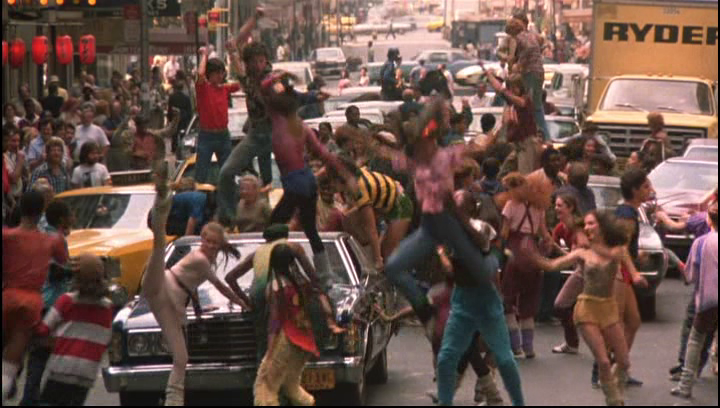
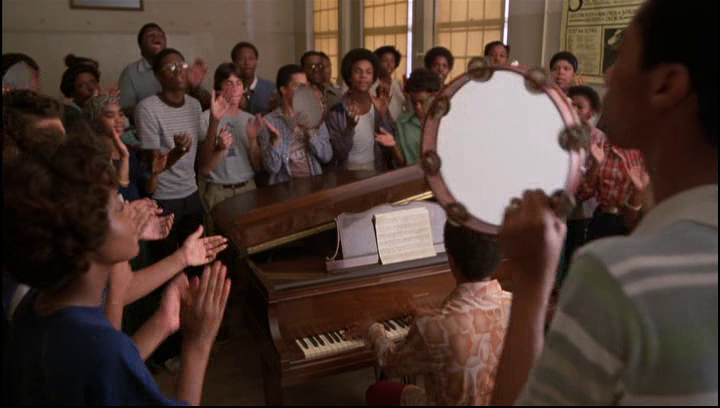
One thought on “Fame (1980)”
Not must-see.
It’s hard for me to share enthuisiasm about this film. I find it a frustrating viewing experience. I don’t find it particularly entertaining – it doesn’t really succeed as a ‘musical’ (the score is not all that distinctive) and its narrative-free storyline does little more than cover the essentially unformed amd erratic thought-and-action processes of teens. (We don’t learn much that’s unique about the young ensemble so there’s little that resonates once the film is over.)
Anne Meara’s character is particularly troublesome since it’s hard figuring out how she could hold her position when she exudes nothing but a harsh, one-note personality. She seems to have almost no sympathy with or love of young people who want to be actors. In fact, she seems to hold everyone and everything in contempt. Maybe her character shouldn’t be teaching.
It’s not easy illuminating the basic actor’s character in a story. They tend to be self-involved and, ironically, that can be hard to act – unless there is a script that lays out the actor’s psyche in an interesting manner. ‘Fame’ doesn’t have such a script. Also, the temperaments of dancers and musicians are not revealed as set-apart in any way from their thespian school chums.
This subject matter can be handled more successfully and has been: ‘A Chorus Line’ (though it was botched as a film) gets more inside what drives ambitious performers…as does Todd Graff’s ‘Camp’ (2003). Both of those theater-theme works are vastly more entertaining and memorable.
I will agree, though, that ‘Fame’ is marvelously edited. but it’s unfortunate that the bulk of director Parker’s films are awkward and marred in various ways.
NOTE: The sequence involving ‘The Rocky Horror Picture Show’ is particularly jarring. There is a similar sequence in ‘The Perks of Being a Wallflower’. ‘TRHPS’ remains a cultural phenomenon – but showing a captive fan-base adoring it and throwing out tired aside-quips en masse just comes off as embarrassing. Though, of course, in real life, that became something of a sorry joke at actual midnight screenings of ‘Rocky Horror’. The joy of seeing that film with an enthusiastic group began to ebb when the groups turned into something bordering on mindlessly bizarre.